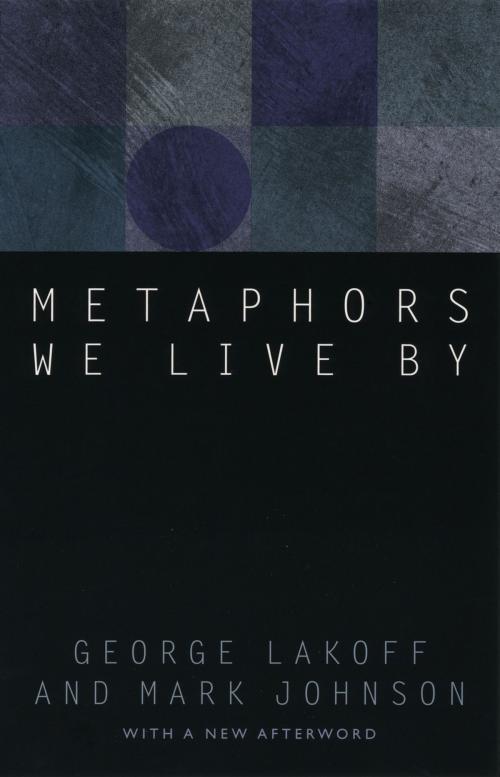Metaphors We Live By
Nonfiction, Reference & Language, Language Arts, Linguistics, Religion & Spirituality, Philosophy, Mind & Body| Author: | George Lakoff, Mark Johnson | ISBN: | 9780226470993 |
| Publisher: | University of Chicago Press | Publication: | December 19, 2008 |
| Imprint: | University of Chicago Press | Language: | English |
| Author: | George Lakoff, Mark Johnson |
| ISBN: | 9780226470993 |
| Publisher: | University of Chicago Press |
| Publication: | December 19, 2008 |
| Imprint: | University of Chicago Press |
| Language: | English |
The now-classic Metaphors We Live By changed our understanding of metaphor and its role in language and the mind. Metaphor, the authors explain, is a fundamental mechanism of mind, one that allows us to use what we know about our physical and social experience to provide understanding of countless other subjects. Because such metaphors structure our most basic understandings of our experience, they are "metaphors we live by"—metaphors that can shape our perceptions and actions without our ever noticing them.
In this updated edition of Lakoff and Johnson's influential book, the authors supply an afterword surveying how their theory of metaphor has developed within the cognitive sciences to become central to the contemporary understanding of how we think and how we express our thoughts in language.
The now-classic Metaphors We Live By changed our understanding of metaphor and its role in language and the mind. Metaphor, the authors explain, is a fundamental mechanism of mind, one that allows us to use what we know about our physical and social experience to provide understanding of countless other subjects. Because such metaphors structure our most basic understandings of our experience, they are "metaphors we live by"—metaphors that can shape our perceptions and actions without our ever noticing them.
In this updated edition of Lakoff and Johnson's influential book, the authors supply an afterword surveying how their theory of metaphor has developed within the cognitive sciences to become central to the contemporary understanding of how we think and how we express our thoughts in language.















